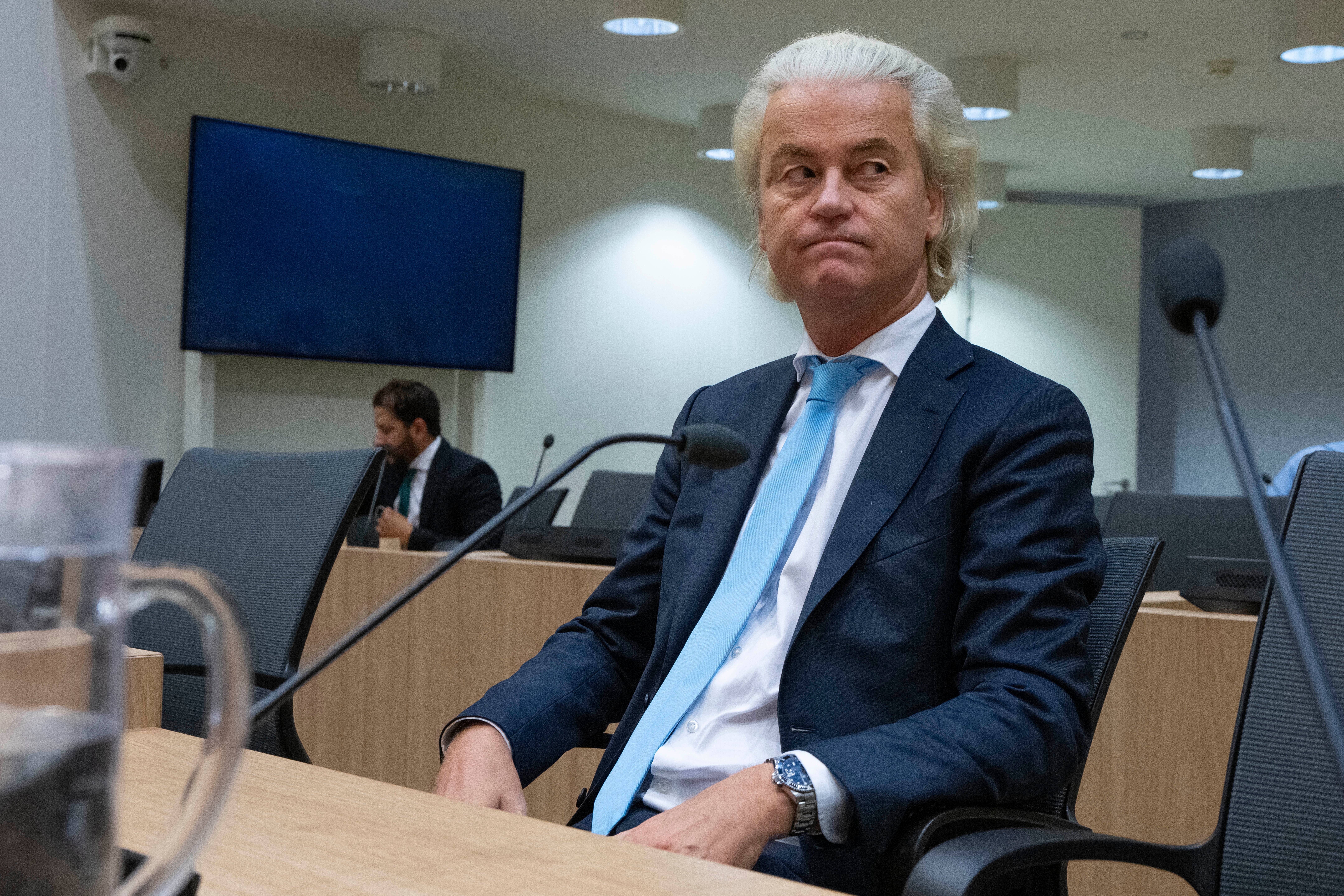Dutch anti-Islam lawmaker Geert Wilders has withdrawn a 2018 proposal to ban mosques and the Quran
Far-right Dutch election winner Geert Wilders is withdrawing legislation he proposed in 2018 that calls for a ban on mosques and the Quran

Your support helps us to tell the story
From reproductive rights to climate change to Big Tech, The Independent is on the ground when the story is developing. Whether it's investigating the financials of Elon Musk's pro-Trump PAC or producing our latest documentary, 'The A Word', which shines a light on the American women fighting for reproductive rights, we know how important it is to parse out the facts from the messaging.
At such a critical moment in US history, we need reporters on the ground. Your donation allows us to keep sending journalists to speak to both sides of the story.
The Independent is trusted by Americans across the entire political spectrum. And unlike many other quality news outlets, we choose not to lock Americans out of our reporting and analysis with paywalls. We believe quality journalism should be available to everyone, paid for by those who can afford it.
Your support makes all the difference.Far-right Dutch election winner Geert Wilders made a key concession to potential coalition partners on Monday, announcing that he's withdrawing legislation that he proposed in 2018 that calls for a ban on mosques and the Quran.
The move came a day before talks to form the next government were set to resume following the November election. The abandonment of the bill could be critical in gaining the trust and support of three more mainstream parties that Wilders wants to co-opt into a coalition along with his Party for Freedom, known by its Dutch acronym PVV.
One of those parties' leaders, Pieter Omtzigt of the reformist New Social Contract, has expressed fears that some of Wilders’ policies breach the Dutch Constitution that enshrines liberties, including the freedom of religion.
During a parliamentary debate last year after the PVV won 37 seats in the 150-seat lower house of the Dutch parliament in the Nov. 22 general election, Wilders flagged a softening of his party's strident anti-Islam stance.
“Sometimes I will have to withdraw proposals and I will do that,” Wilders said in the debate. “I will show the Netherlands, the legislature, Mr. Omtzigt's party — anybody who wants to hear it — that we will adapt our rules to the constitution and bring our proposals in line with it.”
Wilders is due to resume coalition talks on Tuesday with Omtzigt, and the leaders of two other parties — the center-right People's Party for Freedom and Democracy of outgoing Prime Minister Mark Rutte and the Farmer Citizen Movement led by Caroline van der Plas.
Among three pieces of legislation axed by by Wilders Party for Freedom was one dating back to 2018 that proposes banning “Islamic expressions.” The text of the bill labels Islam a “violent, totalitarian ideology” and proposes bans on mosques, the Quran, Islamic schools and the wearing of burqas and niqabs.
Wilders didn't immediately comment further on the decision to withdraw the legislation, which his party announced in a brief statement.
The three laws were proposed to parliament by Wilders in 2017, 2018 and 2019, but never garnered a majority in the lower house.
In an assessment of the proposed ban on Islamic expressions, the Council of State, an independent watchdog that evaluates legislation, called on Wilders to scrap it.
“The Advisory Division advises the initiators to abandon the bill,” the council said in advice published in 2019. “It is not compatible with the core elements of the democratic constitutional state; elements that the initiators intend to protect.”